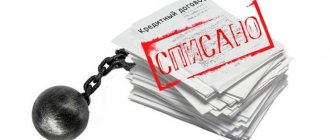How collectors are born
How did your collection career begin?
In 2005, I was an evening student and was looking for a job. After passing the interview, I ended up in the bank’s economic security department. Then career growth began, and I rose to the position of head of the control group for the work of regional divisions, where I was involved in risk analysis.
When the dominance of “scoring” (automatic calculation of lending opportunities) occurred and specialists of my level were no longer needed, I went to the collection service of one of the large banks, and only then to a collection agency, to a management position.
How many subordinates did you have and in what regions did you work?
For 3 years I traveled all over Russia, except Kaliningrad and Vladivostok. So I worked almost everywhere. The largest staff I have managed is 1,574 people.
What exactly were your responsibilities?
I completely structured the work of the regions: I monitored indicators, made decisions on opening and closing branches, centralization and decentralization. In general, he performed a full range of work on monitoring regional branches.
How does the collector work?
Tell us about the structure of the collection company.
The collection service consists of four stages. 1) The first three days of delay - SMS and calls. 2) Next, a call center works with the debtor for a month. 3) The pre-trial collection department has been working for another two months. This includes debtors who are 30 to 90 days overdue. 4) The last stage is the judicial department and the enforcement department.
True, I worked for a long time, and since then the system has changed a little: automatic systems appeared on the market. Now people only work on stages 2, 3 and 4.
Tell us about pre-trial collection.
Look, pre-trial work includes going directly to the debtor, trying to understand the person’s psychology and identifying the reason why he was in default. In general, it is important to establish a live connection here.
Did you have to exert physical or moral pressure?
Banks and large collection agencies are not easy to get into. The selection is brutal. We had constant feedback from borrowers; if any incidents surfaced in which the inspector was tactless, he was simply fired. It is clear that “debtor” signs on mailboxes, property damage, pressure and physical impacts are out of the question.
But in fairness, it is worth noting that at all times there were micro-collection agencies that bought up the most problematic debts. It is these gentlemen who set houses on fire, beat people and defame the letter of the law. This redneck and scum decided that it could terrorize people as it pleased. Unfortunately, most regions are susceptible to this scourge.
Again.
The task of an adequate inspector is to collect the debt without bringing the case to court. At the same time, it is important not to drive the debtor into depression and not to give him a nervous breakdown, so that he does not run to write a statement to the police.
It is important to preserve the face of the company in any situation.
How is a collection company plan built?
First, it’s worth talking about work patterns. There are two of them.
1) Servicing a portfolio that is on the balance sheet of a bank. 2) Redemption of this portfolio by the agency itself.
There is a plan for each of the portfolios, just like salespeople. It's simple: you need to collect money and bring it to the agency. The plan depends on the region and the specific specialist.
In what cases do banks and microfinance organizations seek to sell debt to collectors?
Most financial organizations strive to collect debts on their own, conduct lengthy negotiations with defaulters, and offer deferment or debt restructuring. This strategy is caused by the desire of banks and microfinance organizations to receive at least part of the money invested in the borrower in order to reduce costs. However, after several months of unsuccessful debt collection, the costs of interacting with the debtor (payment for the services of employees of the department for working with problem loans) exceed the amount of the loan, and the agreement is resold to collectors.
Most banks and microfinance organizations resell overdue debts of the following categories of clients at a minimal discount:
- Borrowers who have taken out a loan for a large amount. If the principal debt (without interest, penalties and fines) exceeds a million rubles and the client refuses to pay the funds, the bank will prefer to resell the agreement to collectors. Such loans are issued to solvent clients; often an additional pledge or guarantee agreement is drawn up, so the likelihood of successful collection is high.
- Borrowers with unencumbered liquid assets. If a client owns a country house, apartment, car, securities and other assets, but has made a significant delay, the banking organization will rush to sell the debt to collectors. Clients who own assets with various encumbrances (minor children are registered in the apartment, a country house is in shared ownership, a car serves as collateral) are less attractive from the point of view of collectors.
- Borrowers with a history of good financial discipline and solvency. Often, long delays in loan payments are caused by force majeure (for example, the client lost a high position due to the liquidation of the company). The probability of repayment of such debt remains high.
- Borrowers who provided collateral or a guarantor (co-borrower) at the conclusion of the agreement. Loans issued with collateral or with the involvement of guarantors have a high probability of repayment. Collection agencies, by law, can demand payment of debt from a co-borrower or guarantor, and the sale of collateral to pay off financial obligations is also allowed.
- Borrowers who have paid off more than 30% of the debt. If more than a third of the debt has been previously repaid or the client continues to make small payments, collectors' confidence increases. The bank can sell such debts at an increased cost.
Financial institutions are seeking to sell to collection agencies “bad” debts that have been unsuccessfully collected for several months. For example, the borrower does not have a constant source of income and liquid assets in the property, refuses to communicate with employees of the collection department, and has a bad credit history. Banks sell such agreements for a few percent (up to 1%) of the nominal value in order to get rid of “bad” debts.
About collection money
How much does it cost to buy out a bank portfolio?
From 15 to 60% of the amount of debts.
What percentage of debt repayment is considered good?
50%. More is better, of course.
What amounts did you work with?
From 1,500 rubles to 4,000,000. Large debtors, of course, were given favorable conditions for payments: an individual payment schedule and refinancing.
What about the salary?
Collectors rely almost entirely on interest. The fixed part was paid at the minimum wage to simply pay for travel - about 15,000 rubles. If we talk about full salaries, top employees received 150,000–200,000 rubles, which was very good money for 2008–2011.
Exactly how much did you receive?
Let's just say that my salary, as a manager, was 80,000 rubles. And so, on top of the salary, the employee receives 1.5–3% of the debt amount. The percentage depends on the price of the portfolio for which it was purchased.
What happens if you point a gun at the collector?
Have you been attacked by debtors?
Once I went to the inspectorate in the Central Federal District. There was a new inspector with me, still untested, completely green. Everything went as usual: they knocked on the door, showed their IDs, had a conversation - and so on.
Everything was fine until the debtor came out of one of the doors with a gun and yelled: “You either get out or get screwed.”
So what did you do?
We just left.
Didn't bother contacting the police?
This is pointless, because this case can be played up as home defense, self-defense. No, we simply transferred this debtor to judicial collection.
How debtors are born, honest and not so honest
Why don't people pay back their debts? Is this some kind of calculation, maybe Russian?
It's a matter of simple financial illiteracy. As a rule, people want to repay their debt, but due to overestimation of their financial capabilities, they borrow too much, getting deeper and deeper into the debt hole. In 80% of cases this is exactly the case. And, alas, it is mainly the regions that suffer from this.
For example, a careless grandson, registered with his grandmother, takes out loans. After some time we arrive. On the threshold, grandma is God's dandelion. The grandson is on the run, with all the phones and laptops he bought on credit. As a result, the debt falls on the grandmother. And she is ready to pay from her pension of 3,500 rubles. 500 rubles monthly...
Unfortunately, this amount is not even enough to pay off interest. Therefore, we decide on the spot to freeze interest, so as not to drive my grandmother into lifelong debt.
Or here's another one.
We arrive at the place. A village house divided in half. Inside is a girl with a child. But no husband. He left, leaving the family with loans that were taken out for household items. It’s clear that a girl living on benefits is simply unable to cope with such a debt load. What to do here? Freeze interest.
Here you can also write down those who were laid off, those who were transferred out of staff, those who received express loans by buying in installments. No one explains to the latter that the effective rate on such products reaches 50%.
Well, don’t forget about poverty. Imagine, many people literally cannot pay off a debt of 1,500 rubles. Because they can't. What about the remaining 20%?
These are those who deliberately commit deception.
If a person specifically prepared for a scam, then it is almost impossible to recover from him. Such loans are classified under the heading “uncollectible debts”.
This also includes the debts of deceased clients who had neither insurance nor co-borrowers.
If a cunning debtor transferred all his property to other people, leaving himself the only home - what to do?
According to the law, there is a minimum living area (6 sq.m. for 2020), so the only apartment will simply be put up for auction, and the debtor will be given that same area and a minimum set of household appliances: a refrigerator and a gas stove, for example.
Debtor protection options if the debt accrues interest
If a bank or microfinance organization sold the debt on assignment, it is too late to ask them for a deferment in payment, restructuring of the loan or suspension of the accrual of penalties. How to protect your interests:
- if a debt collected by a court decision is sold, you can ask for a deferment or installment plan for payment, and seek a reduction in the amount of deductions. Ask debt collectors for copies of debt documents. If the loan/microloan was collected by a court order that you did not know about, file a petition to cancel the court order;
(22.4 KB)
Petition to restore the deadline for canceling the court order (17.6 KB)
- if debt collectors have purchased a debt for which the statute of limitations has expired, when collecting through the court, you must immediately file a petition to terminate the case;
(33.5 KB)
- if collectors offer to negotiate and the company looks serious:
— the company is in the FSSP register; — you were notified in writing about the assignment, provided with documents, — they speak calmly and are ready for dialogue
consider this option. Collectors buy complex and bad loans from banks and microfinance organizations for 1-10% of the cost, so if the debtor pays 30% or more, they are already a winner. You may be able to shed some of your debt and buy back your own loan at a discount. In this case, make payments only after signing an agreement to repay the debt.
- if a collection organization filed a claim and the statute of limitations has not expired, you can ask the court to reduce the amount of the penalty under Art. 333 of the Civil Code of the Russian Federation (disproportionality to the main obligation);
(21.2 KB)
- To completely stop accruing interest and write off debts, you need to file for bankruptcy.
Legal advice.
The last of these points is especially important. As soon as the arbitration court initiates a bankruptcy case, the accrual of penalties and other penalties will be suspended. As part of a bankruptcy case, it is possible to write off most debts, including those purchased by collection organizations.
Our services
Sale of property - bankruptcy "turnkey" - from 7,900 ₽/month.
Legal support for bankruptcy - from 88,000 ₽
Preparation for the extrajudicial bankruptcy procedure - 15,000 ₽
Consultation on bankruptcy of individuals - 0 ₽
Naturally, during bankruptcy you can lose property and face restrictions. However, with the support of experienced lawyers, all consequences of bankruptcy will be mitigated, and you will achieve relief from the credit burden.
You can use all of the above protection methods. For example, there is no point in filing for bankruptcy if the statute of limitations for debt collection has expired - this issue can be resolved through the usual lawsuit procedure, if collectors begin to demand overdue debt at all.
However, if the collectors have a court decision and a writ of execution in their hands, and the repurchase of the debt is confirmed by an assignment agreement, and the amount is more than 250 thousand rubles, bankruptcy may be the only real option for protection.
You can learn more about the rules and conditions for calculating interest by collection organizations from our specialists. Contact us, we will help even in the most difficult situation!
About the qualities of a collector, corporate events and professional deformation
Did you manage the hiring of employees? What qualities should a collector have?
Yes, he was in charge.
To begin with, the main thing is the desire to work. Then - the person’s understanding of where he came to. The work is very difficult psychologically. Many simply broke down. The lion's share of candidates are people with experience. Former law enforcement officers and bailiffs are practically ready-made collectors.
Is it possible to work as a collector all your life?
A collector is a job that takes several years. The most I've seen is a collector with 10 years of experience. But we’re not talking about ordinary employees who work on the road, of course - these guys don’t stay long at all, because the stress on the psyche is too great.
Tell us in more detail how an employee’s work “on the road” is structured?
Employees come to the region, share a portfolio, and that’s it. Next, you are given a portfolio plan and 30 or 60 days to recover. Every 2 weeks you must report on the work done.
It doesn’t matter at all how you collect the amount, the main thing is the money. There is complete freedom of action here.
Can you be called “headhunters”?
It's very rough, but overall yes.
How are your relationships with colleagues built?
Just like any office job. With corporate parties, friendship and other joys.
Have you organized corporate events on a grand scale?
The company had enough money, so there were restaurants and cruises on ships. There's nothing to complain about.
What about professional deformation?
Occurs.
Over time, you become a terrible cynic.
Tell us about government services for debt collection. Is it true that they are ineffective compared to agencies?
In the Russian Federation there is only one collection service - the Federal Bailiff Service. The service deals with enforcement proceedings, that is, where they have already gone through and won a trial. These are the people who confiscate televisions from debtors and destroy cars and houses.
Now these guys' work has been made much easier. Now they can simply block the debtor’s accounts and write off money from them. It’s impossible to get out of it, pay off the debt from your salary card anyway.
If a child takes out a loan, will his parents be required to repay the debt?
No, the debt does not apply to the family. There are only two options to receive a debt from a third party: firstly, if you are a co-borrower, and secondly, by inheritance.
When is debt repayment possible?
The sale of debts under a writ of execution occurs when the creditor needs funds. Contacting the FSSP gives a positive result, but takes a lot of time. In addition, you will have to go through several stages of completing various formalities associated with applying to this government agency.
Selling a debt allows you to obtain the necessary funds immediately and eliminate the need to influence the debtor or wait for others to do it. The only disadvantage of this method is the loss of part of the amount owed by the counterparty. But they sell debts that are categorized as bad debts.
Not all debt obligations can be sold, or rather assigned to another person. This is permissible in relation to obligations that arise from contracts:
- credit;
- supplies;
- contract, etc.
But it is impossible to assign alimony, compensation for health or moral harm. The law prohibits the transfer of any rights related to the identity of an individual creditor. As a general rule, you can sell a debt or change the creditor in the case where the possibility is specified in the agreement. This point is missed by bank borrowers if they are not read carefully.
If there is no condition in the agreement, then the creditor cannot transfer the debt to another person. This does not exclude the possibility of turning to collectors for its speedy return. The rule does not apply to debt that is collected in accordance with a writ of execution. In this case, the creditor turns to the bailiff to open enforcement proceedings, and then sells this debt.
The basis for the transfer is the order of the bailiff, and the consent or disagreement of the debtor does not play any role. But one of the parties, usually the new creditor, is obliged to inform the interested party.
About inherited debts, the crisis and the wild 00s
Is it better not to enter into an inheritance if a relative is a debtor?
It is important to objectively assess what you will gain and what you will lose.
You worked during the 2008 crisis. What can you say about the crisis of 2021? Will history repeat itself?
Yes, now we can expect another peak in collection activity. The people in the regions are maximally borrowed from all kinds of microfinance organizations.
People try to catch up before payday, but end up stuck in debt and inadequate interest rates. MFOs don’t care about credit history or existing credit load—they give it to everyone. But man, he wants all the good here and now, which ultimately plays a cruel joke on him. The situation is that the loan amounts have become smaller, but the debts have increased.
When you travel through the regions, it becomes scary from the number of signs, banners and banners of microfinance organizations. Scary and sad.
How has the profession changed since 2008?
Firstly, a law on collection activities was passed. Previously, a debt collector could come to visit you at night, set up an automatic call around the clock, and damage property. In 2021, the collector does not even have the right to call the debtor at certain hours. Everything is regulated.
If the collector violates the law, the debtor has the right to contact the police, which can lead to the revocation of the agency’s license.
Are irons and soldering irons in a collector's inventory a myth?
Rather yes than no. All this comes from the 90s, which in some regions is still not over. So perhaps this is still practiced somewhere.
If you remember, somewhere in 2011, collectors threw a Molotov through the debtor’s window. Then the child got burned.
What if a person simply has no money and nothing to sell?
Then the court will oblige the debtor to pay 33 rubles for 100 years. What can you do?
But don’t forget about micro-collection agencies. These can also use force.
How do people get out of debt?
I remember there was a person who completely changed his data: full name, re-registered in another region. Of course, we found this conspiracy theorist, not without the participation of the police.
About pity for debtors and good parting words
Did you feel sorry for the debtors?
Of course.
I think I received some kind of psychological trauma from this work. Sometimes I came home, looked silently at the wall and tried to understand what was happening in the country.
Was there anything good about your work?
Money. And self-development, of course. I learned to quickly analyze a situation, recognize a lie, and generally understand people.
Why did you leave?
I left analytics because banks began to introduce “scoring”. And from debt collection, because I simply burned out.
Give advice on how a person can avoid falling into a credit hole?
You need to sit down in front of a notepad, write down the amount of your monthly income, subtract expenses from it, and then figure out whether you can repay the loan with this amount. Everything is simple if you approach the matter with a cool head and don’t follow your desires.
Are you hiding your debt collection past?
No. There is simply nothing to hide, I think.
Did you like the interview? Read others: here is the alphabetical index - choose to your taste. And subscribe to Rabdno on telegram, Instagram and VKontakte. You will not miss new interviews, and we will be pleased.
Let's sum it up
Banks often sell debts to collectors. Those agreements under which debtors fulfill their obligations on a regular basis are almost never implemented, but debts that are unlikely to be collected become the subject of such transactions.
When assigning the right of claim to collectors, the borrower should carefully assess the situation, its legality, the actions of the new claimant, and then proceed to some actions, from payment to contacting law enforcement agencies.








